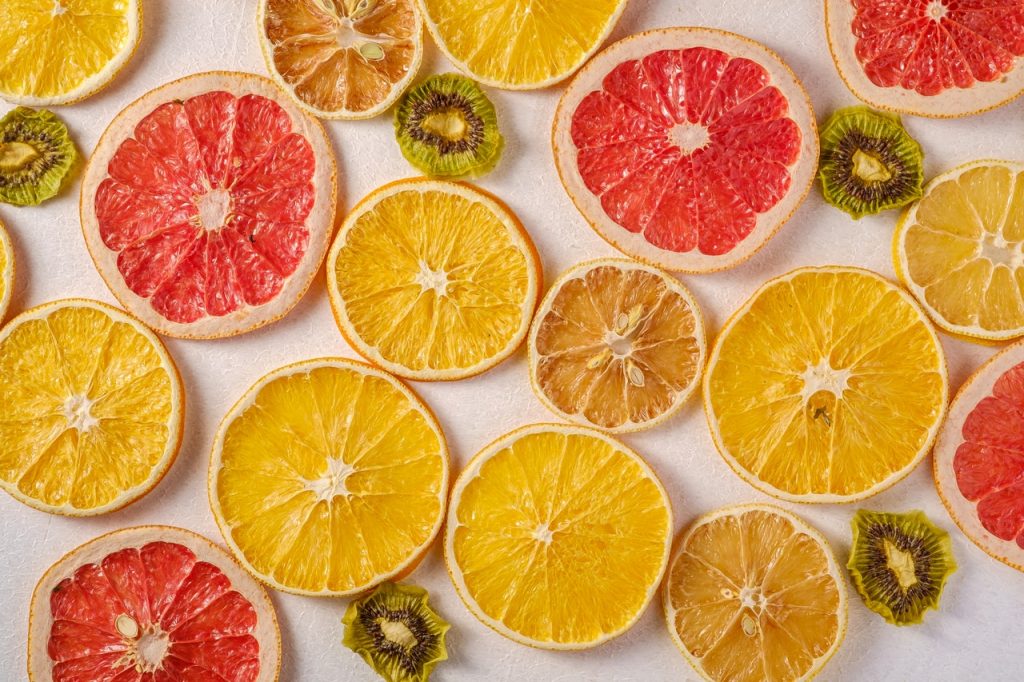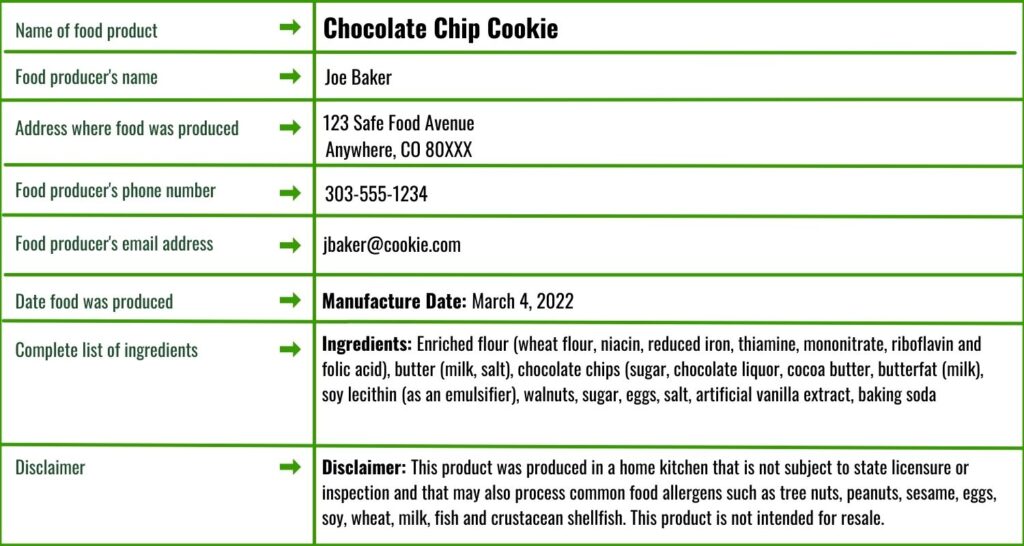Dehydrating foods is an age-old practice that has been used extensively throughout history. Dehydrating produce removes water from the product, extending its shelf life. Under the Colorado Cottage Foods Act, only dehydrated produce is allowed – jerky and other dehydrated meat products are not permitted.

Potential Products
Fruits
Dehydrated slices or chopped pieces of various types of fruit.
Fruit/Vegetable Leathers
Dehydrated purees of fruits and vegetables formed into strips.
Vegetables
Dehydrated and eaten as snacks or reconstituted and used in cooked foods.
Soup/Dip Mix
Dehydrated vegetables and herbs with instructions for adding ingredients and preparing.
Powdered Mix
Dehydrated fruits and/or vegetables powdered to be used in the preparation of food products.
Safely Providing Samples
Samples must be offered in a sanitary manner using single-use service items such as disposable napkins, toothpicks, or cups. Servers must wear a new pair of gloves when preparing samples and/or use clean utensils when handling samples. If providing any product in its prepared form, such as dip mix, precautions to maintain proper temperatures and avoid contamination must be taken. Customers must not be allowed to dip directly into products.
Food Safety Concerns
There is a risk of mold and pathogen growth if the product is not dehydrated adequately. Oils should not be added, neither sprayed on during processing nor post dehydration.
Packaging
Products must be packaged in food grade materials. All cottage food products must display the information required by the Colorado Cottage Foods Act and outlined by the Colorado Department of Public Health and Environment.
QUESTIONS:
Q: Can I make fruit leather with cream cheese?
A: No, adding a dairy product to fruit leather would make it potentially hazardous.
Q: Can I sell sun-dried tomatoes?
A: Sun drying is not recommended due to risk of contamination and inconsistent dehydration. Produce should be dried using a dehydrator or oven to achieve adequately low water activity levels.
Resources
- Colorado State University Extension: http://extension.colostate.edu
- National Center for Home Food Preservation: http://nchfp.uga.edu
Colorado Cottage Foods Act
Colorado Senate Bill 12-048 allows individuals to produce, sell, and store a limited number of specific, non-potentially hazardous ‘cottage food’ products, in a home kitchen. Cottage food businesses require no license or permit from the Colorado Department of Public Health and Environment and are not inspected by any state or local government entity. Products must be sold directly by the cottage foods operator to an informed end consumer and gross sales for each product produced must not exceed $10,000 annually. Sales outside of the state of Colorado are prohibited.
Allowed Cottage Food Products in Colorado
A limited range of foods that are non-potentially hazardous and do not require refrigeration are allowed. These foods include spices, teas, dehydrated produce, nuts, seeds, honey, jams, jellies, preserves, fruit butter, flour, baked goods including candies, fruit empanadas, and tortillas, and pickled fruits and vegetables.
General Labeling Requirements
A cottage food operation may only sell products offered with a label containing the following information (printed in English):

Food Safety Training
Although a cottage food kitchen does not require licensure, the producer does need to obtain food safety training. The Colorado Cottage Food Act requires “a producer must take a food safety course that includes basic food handling training and is comparable to, or is a course given by, the Colorado State University Extension service or a state, county, or district public health agency, and must maintain a status of good standing in accordance with the course requirements, including attending any additional classes if necessary.”
Trainings that CSU Extension offers include face-to-face as well as online classes, varying in length and cost. Contact your CSU Extension county office for more details: http://extension.colostate.edu. For information on class offerings near you, visit: https://foodsmartcolorado.colostate.edu/food-safety/cottage-retail-foods/.
Resources
Colorado Department of Public Health and Environment: http://cdphe.state.co.us and Colorado Farm to Market: http://cofarmtomarket.com

